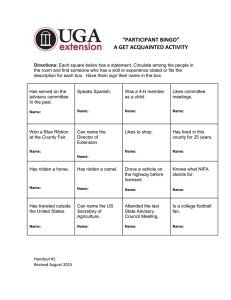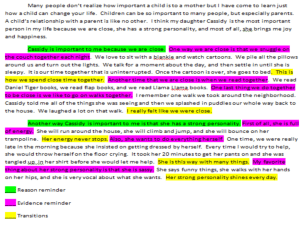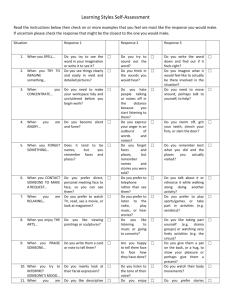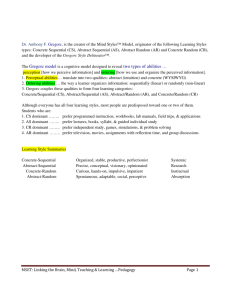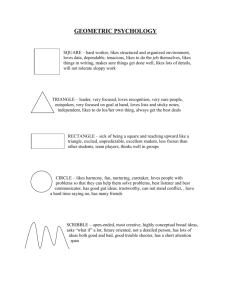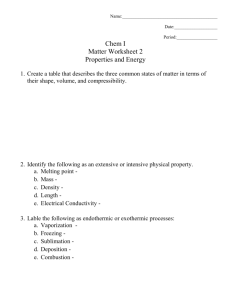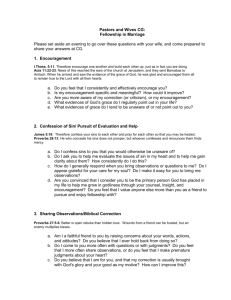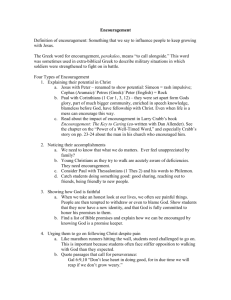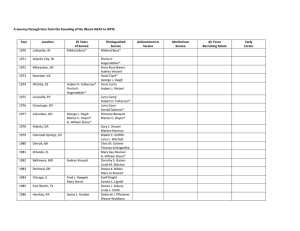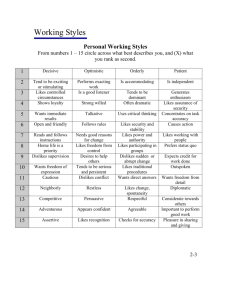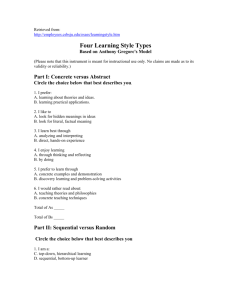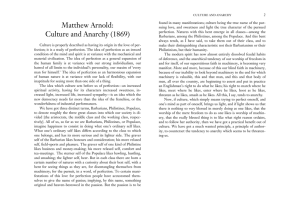Characteristics & Implications - University of Illinois Extension
advertisement
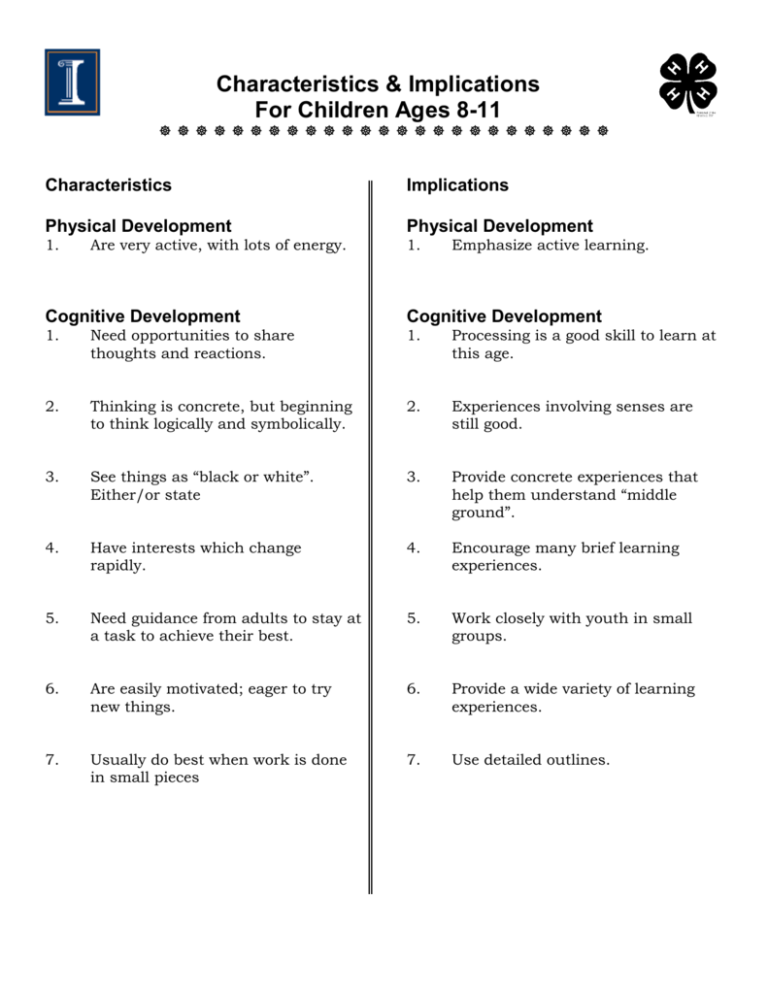
Characteristics & Implications For Children Ages 8-11 Characteristics Implications Physical Development Physical Development 1. 1. Are very active, with lots of energy. Emphasize active learning. Cognitive Development Cognitive Development 1. Need opportunities to share thoughts and reactions. 1. Processing is a good skill to learn at this age. 2. Thinking is concrete, but beginning to think logically and symbolically. 2. Experiences involving senses are still good. 3. See things as “black or white”. Either/or state 3. Provide concrete experiences that help them understand “middle ground”. 4. Have interests which change rapidly. 4. Encourage many brief learning experiences. 5. Need guidance from adults to stay at a task to achieve their best. 5. Work closely with youth in small groups. 6. Are easily motivated; eager to try new things. 6. Provide a wide variety of learning experiences. 7. Usually do best when work is done in small pieces 7. Use detailed outlines. Characteristics Implications Social Development Social Development 1. Look to adults for approval. 1. Show your approval and appreciation. 2. Prefer individual achievements over competition. 2. Encourage individual and group success; seldom put them in competition with friends. 3. Likes encouragement and suggestions over competition. 3. Positive encouragement is important. 4. Likes to join organized groups. 4. Use of small group work is good. 5. Beginning to take responsibility for own actions. 5. Set them up in situations that require responsibility. 6. Prefer to be with members of own sex. 6. Divide into same sex groups, especially, when they don’t know one another well. 7. Beginning to build and understand friendship. 7. Don’t compare the success of one child with another’s. 8. Looks up to and imitates older youth. 8. Provide chances for youth to learn from older youth. 9. Acceptance by peer group is an important reward. 9. Have group give applause for completed activities. Avoid put-downs. Emotional Development Emotional Development 1. Strong need to feel accepted and worthwhile. 1. Set them up for success. 2. Independence is shown by disobedience; back-talk and rebelliousness. 2. Allow youth to show independence. Give individual attention. Prepared By: Sheri Seibold, Extension Specialist, 4-H Youth Development July, 2006. State County Local Groups US Department of Agriculture Cooperating University of Illinois Extension provides equal opportunities in programs and employment.

